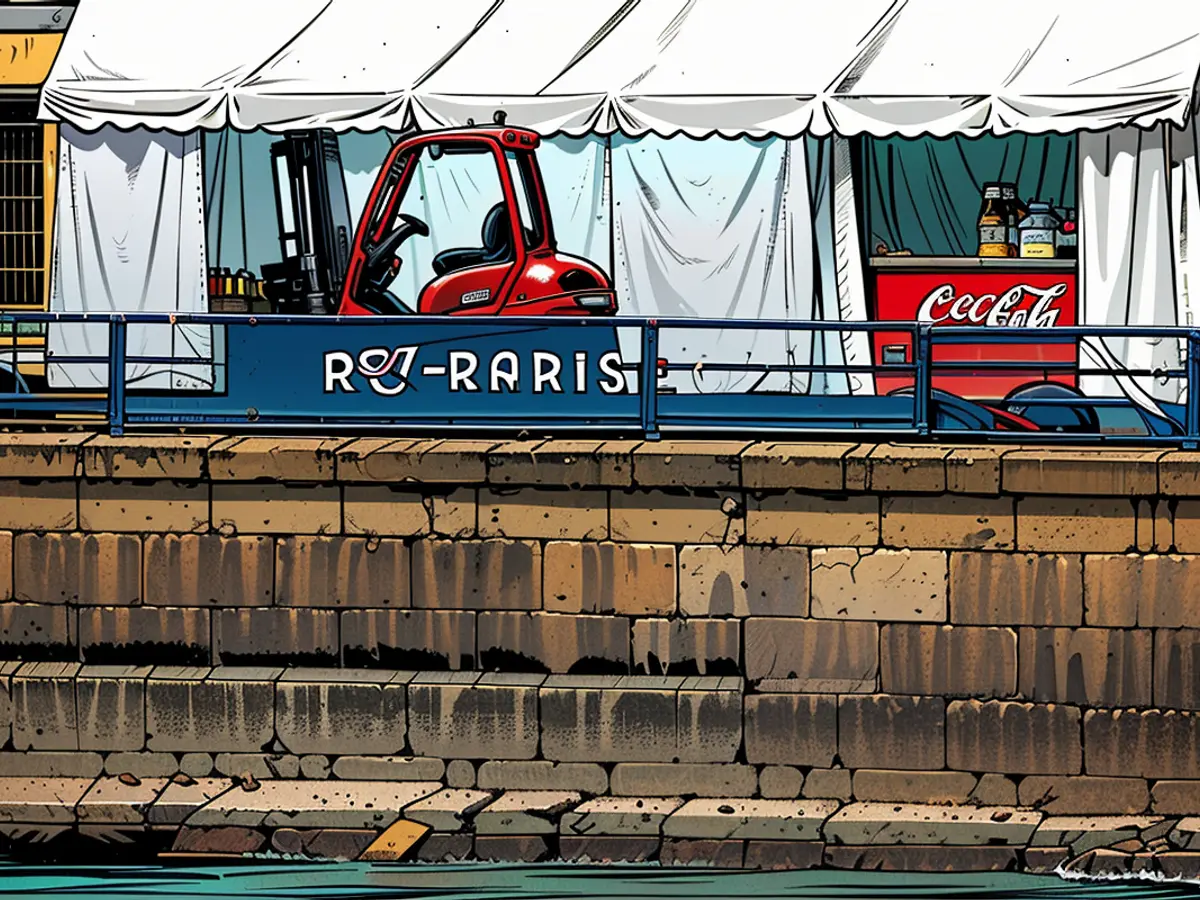- That's why swimmers drink Coke at the Olympics.
Professional athletes typically don't reach for a soft drink first after an exhausting competition. However, at this year's Olympic Games in Paris, swimmers can be seen taking a sip of cola as soon as they emerge from the Seine after crossing the finish line. This isn't a marketing ploy, but a medical measure.
Cola allegedly helps with diarrhea
Cola has been attributed with various special effects, from supposedly containing cocaine (false) to being a lifesaver for diarrhea (also false). Now, a new superpower seems to have been discovered in the sweet drink. A strong sip of cola is said to help against bacteria from the Seine.
The river is, of course, one of the major topics of concern at the Olympics. Despite extensive cleaning efforts before the Games, the water quality is far from appealing. Training sessions for triathletes have had to be cancelled multiple times. The fear of harmful bacteria is high.
Olympic Games: Discontent over the Seine's water quality
The competitions are still taking place in the water - to the concern of the athletes. "I think if anyone says they're not worried, they're probably lying," Austrian swimmer Felix Auböck told the Wall Street Journal, which first reported on the cola theme.
The concern about the E. coli bacterium, which can cause bloody diarrhea, is particularly high. Belgian triathlete Claire Michel fell ill after her individual competition because she had been infected with the bacterium. She may have caught it in the Seine.
Due to such concerns, for example, New Zealand's Ainsley Thorpe swears by post-race cola. "It can't hurt to drink a cola after a race," she told the "Wall Street Journal". "If you google it, it says it can help."
Expert: Coca Cola brings nothing to the athletes
But is that really the case? Do the athletes protect themselves from infections thanks to cola?
Probably not. The president of the American Gastroenterological Association, Dr. Maria Abreu, told the newspaper that a healthy stomach is more acidic than cola and therefore cannot kill any additional bacteria. "These are young, athletic people whose stomach acid is strong enough."
However, sugar, which is abundant in cola, does help to replenish glycogen stores after a tough race. So, drinking cola isn't entirely useless for the athletes.
At the Olympic Games in Paris, swimmers are seen consuming cola to combat potential bacterial infections from the Seine water. Despite the common belief that cola can aid in fighting diarrhea, expert opinions suggest that its acidity is not stronger than the stomach acid of athletes, and therefore, it may not effectively kill additional bacteria.








